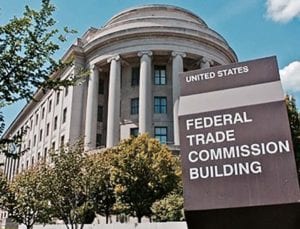False hotel advertising continues while the FTC watches

For years, consumers have been plagued with the issue of mandatory resort fees. Once upon a time, guests who checked their bills were able to refuse payment. However, with an FTC that has chosen to look the other way for years, hotels have had a field day with the truth and harmed America’s consumers.
READ ALSO: FTC can stop hidden lodging fees. Why won’t it?
In the introduction to the FTC Economic Study, researchers note that the current system harms consumers.
This analysis finds that separating mandatory resort fees from posted room rates without first disclosing the total price is likely to harm consumers by increasing the search costs and cognitive costs of finding and choosing hotel accommodations. In this situation, a consumer’s choice is either to incur higher total search and cognitive costs or to make an incomplete, less informed decision that may result in a more costly room, or both. The analysis finds that separating resort fees from the room rate without first disclosing the total price is unlikely to result in benefits that offset the likely harm to consumers.
According to the FTC study, hotels can solve this problem by including the mandatory resort fees in the room rates or by making the resort fees optional. Both would serve the purpose of making the advertising honest.
Hotels could eliminate these costs to consumers by including the resort fee in the advertised price. They could still bundle the same resort services with the room and charge the same total price. They could also list the components of the total price separately, as long as the total price is the most prominently disclosed price. Hotels would also have the option, as they do now, of changing to unbundled, optional resort services, which would not be included in the advertised price.
What more does the FTC need? It is not difficult to ascertain that when a hotel advertises that the room rate is one price and then requires a consumer to pay more, sometimes twice as much, the advertising is false. Plus, the new and damning FTC economic study makes it clear that consumers are harmed by this deception. It is almost impossible to believe that the theoretically consumer-friendly Obama FTC has refused to take action to stop this blatant false hotel advertising.
Consumers had hopes that the Trump administration, ironically led by a president who used to own and manage a major hotel chain, would have the fortitude to stop this deceptive and dishonest hotel practice. However, to date, that has not happened.
The Trump hotels do not charge resort fees at any property except their Las Vegas hotel. There, it is economic suicide to refrain from charging resort fees. In Las Vegas, honest hotels appear to cost more than hotels that charge mandatory fees not included in the advertised room rates.
Travelers United spoke with one of the FTC commissioners last month. We have engaged the National Association of Attorneys General in the effort. We met with the advertising department of the FTC two months ago. And now, after years of discussions, Booking.com has notified hotels that they will start charging commissions on mandatory fees. Perhaps things are beginning to change even without a Presidential edict.
ALSO ON TRAVELERS UNITED: When is a best-room-rate a scam? Plus, more hotel lies

Charlie Leocha is the President of Travelers United. He has been working in Washington, DC, for the past 14 years with Congress, the Department of Transportation, and industry stakeholders on travel issues. He was the first consumer representative to the Advisory Committee for Aviation Consumer Protections appointed by the Secretary of Transportation from 2012 through 2018.



